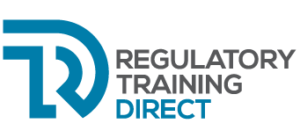Issue 239, August 2023
If you would like to promote your service to our worldwide subscribers, contact us info@regulatorytrainingdirect.com
Training news
We have just finished a total revamp of our “Evidence packages” course. It is designed for companies who supply complementary medicines in Australia, but it is just as relevant to dietary supplements in other countries. If you do this course you should be well equipped to supply evidence to support your product claims if you are challenged.
The course agenda is:
Part 1 – Foundations
Regulatory framework, Overarching principles, Types of indications, Types of evidence, Minimum evidence requirements, TGA evidence package requirements
Part 2 – Researching
How to find evidence – literature searches, How to find evidence – sources of evidence, How to utilise electronic databases, How to assess evidence – relevance, How to assess evidence – quality, How to assess evidence – balance
Part 3 – Compiling an evidence package
Overview, TGA checklists, General requirements (cover page), Evidence search strategy, Evidence filters, Evidence summaries, Critical appraisals, Justifications
This course includes extensive resources and templates, as well as hints, tips, examples and case studies. Attendees receive a list of evidence sources and a user-friendly evidence package template. This is a 3-hour course which can be delivered in a single session or two X 1.5 hour sessions. Conducted in person via Zoom.
1.10. Preparing and submitting a listed medicine application.
Revised, now a very comprehensive course. Agenda:
Regulatory framework, Steps in preparing a listing application, Prerequisites for the listing application, Sponsor ID, Authority to prepare / submit, Required documentation / information, Determine the medicine is eligible for listing, Preparation of the listing application, Validation of the listing application, Submission of the listing application, Certification / Declaration, Conditions of listing, Listing application tips, Example listing application, SOP Checklist supplied A 1.5 hour course.
1.21. AICIS Cosmetic Ingredient Introductions – Part 1 – Overview
There are obligations for organisations by Australian Law if you are importing or manufacturing chemicals. Key steps allow us to identify our obligations and if and how to register and identify your business and chemicals.

A quick guide to identifying if you fall into a category of needing to register your business with AICIS would be if you or your organisation falls within the below:
Manufacture soap via cold- or hot-press methods, If you bring products from overseas that contain ingredients regulated as industrial chemicals (for example: cosmetics {as defined by AICIS} or cleaning products), If you import industrial chemicals for teaching or research, If you manufacture industrial chemicals in a lab or classroom for teaching or research, If you are importing or manufacturing a low volume of chemicals – there is no threshold limit on volume
Rita Sellars from pH Factor will deliver this exciting course, aimed at supporting & guiding businesses that fall into the above categories. The agenda for Part 1 is
Regulatory framework, What is an industrial chemical, Definition of a cosmetic, Introducing an industrial chemical – obligations, Five categories, Record keeping, Exceptions
A free webinar for the homecare products industry will be delivered by pH Factor on Thursday 5th October. Robert Forbes (editor of this newsletter) will be presenting a 20 min segment on greenwashing. More information contact rita@phfactor.com.au
All courses can be viewed at https://www.regulatorytrainingdirect.com/#course-summary
Follow us on LinkedIn: We hope you like our newsletter. If you want to receive up-to-the-minute announcements on new courses, new content and vital regulatory updates follow us on LinkedIn.
REGULATORY NEWS
Complementary Medicines and Medical Devices:
Post market review of all facemasks on the Australian Register of Therapeutic Goods (ARTG) has now closed. TGA News
Choline salicylate, used for teething and the relief of pain, inflammation and discomfort associated with new dentures or braces and mouth ulcers and sores, will only be available from pharmacies from 1st October 2023. Source: TGA news
Safety alert for medicines containing Curcuma longa and/or curcumin as they may cause liver injury in rare cases. TGA has published more information on this issue for health professionals and consumers here.An alternate view on this alert has been published by Complementary Medicines Australia (CMA) which questions the TGA’s view of correlation versus causation. They state “The fatality mentioned … refers to an 82-year-old male – it is not clear that the supplement was the cause of death as he was also taking Naproxen.” CMA puts up a well-reasoned and researched alternative to the TGA’s opinion. Read it in CMA press release.
Pharmacovigilance responsibilities of medicine sponsors. As we reported in our July newsletter, the guidance document was updated on the 1st August. This is important reading for all sponsors of medicines in Australia. The guidance outlines the mandatory reporting requirements and offers recommendations on pharmacovigilance best practice. TGA summary here. Supporting documents are available in either MS Word or PDF format: Pharmacovigilance responsibilities of medicine sponsors [PDF, 705.06 KB] and Pharmacovigilance responsibilities of medicine sponsors [Word, 495.32 KB]. There is an electronic form here for sponsors to report medicine safety issues to the TGA. Frequently asked questions in relation to the pharmacovigilance obligations can be found here.
Regulatory Training Direct has a live course on pharmacovigilance conducted via Zoom, details here.
TGA Webinar – Medical Devices Vigilance Program – to help sponsors understand post-market vigilance requirements though a self-assessment tool, desktop audits and on-site inspections. Thursday 14th September 11 am. Information and registration link here.
TGA Webinar – Unique Device Identification Database includes Q&A. Information and registration link here.
TGA Consultations
Proposed changes to the requirements of ingredients used in listed (low-risk) medicines (as listed in the Therapeutic Goods (Permissible Ingredients) Determination). The proposed changes are to address issues associated with Curcuma species and curcumin and the risk of liver injury, green tea extract and the risk of liver injury, safe levels of benzophenone, clarification of the requirements for soy phosphatidylserine-enriched ingredients, and clarification of the requirements for Terminalia ferdinandiana. You can view the proposed changes in the consultation document here, and you can submit a response using the form found here. Consultation closes 14th Sep 2023.
Proposed new Guidelines for the Quality of Listed Probiotic Medicines. Relevant to probiotics included in listed complementary medicines, and focusses on quality control, safety efficacy and stability. Closes 10th Sep 2023. Draft is available here.
Compliance action
TGA has seized 40,000 vaping products with a street value of over $1.2 million. This was part of a major crime investigation into money laundering, illicit tobacco and nicotine vaping products involving multiple government agencies. Source: TGA
Nius Development fined $26,640 for alleged unlawful import of unapproved cosmetic injectable products. More information here
EmpireLabz Australia has been issued 7 infringement notices totally $115,500 for unlawful advertising and supply of sport supplement products not included in the ARTG. The products contained 1,4-Dimethylpentylamine (DMAA) and 1,5–Dimethylhexylamine (DMHA), banned substances with potential adverse effects including cardiac, nervous and psychiatric disorders. They also contained prescription-only ingredients, including deanol, yohimbine and levodopa. TGA states “The TGA considers the unlawful import, manufacture, advertising and supply of unapproved medicines used in the wellness industry, including sport supplement products, a compliance priority and will continue to take strong enforcement action in this area. TGA media release
Products cancelled from the ARTG
Deep Lung Support (McBoben Group/Green Nature) – The sponsor has refused or failed to comply with a condition to which the inclusion of the goods is subject. Source: TGA
Slim Belly (AussiePharma) – the presentation of the goods in the case of listed goods is unacceptable. Source: TGA
Botanical Adulteration Prevention Programme
Saw palmetto (Serenoa repens) is often used to treatbenign prostatic hyperplasia, and it is also used as a urinary antiseptic. A recent BAPP LinkedIn post states “Unfortunately, the substitution or dilution of saw palmetto extracts with vegetable oils or fatty acid blends from plant or animal sources to attempt to mimic saw palmetto’s fatty acid composition is more commonplace. The lab guidance document (LGD) of saw palmetto, written by Stefan Gafner, Chief Science Officer of the American Botanical Council, evaluates the usefulness of 34 published analytical methods to detect saw palmetto berry and berry extract adulteration with a brief summary of the main advantages and disadvantages of each method. The LGD also details the chemical composition of saw palmetto and many of its known adulterants.” From the BAPP LinkedIn post. Also refer to article in JU Open Plus – an official journal of the American Urological Association
Milk thistle (Silybum marianum) is widely used for various liver disorders, and some extracts have shown extraordinary results in clinical trials. However this herb is also the subject of adulteration by some unscrupulous suppliers. From BAPP LinkedIn post.
Foods:
Allegen labelling in plain English. A reminder that as from 25th Feb 2024 allergen information must be declared in a specific format and location on food labels. This page on the NSW Food Authority website contains useful information:
Allergen names and declaration – When allergens must be declared – Checking for allergens in ingredients – Exemptions – Precautionary allergen labelling – Key points for managing allergens -Allergen case studies Plain English Allergen Labelling (PEAL)
Pregnancy warning label transition period ended on 31st July 2023. Packages and labels of beverages containing more than 1.15% alcohol for retail sale must now include a prescribed pregnancy warning label. Corrugated cardboard outer packing containing more than one alcoholic beverage must display a pregnancy warning mark or optional alternative by February 2024. Source: FSANZ
Food Minsters’ Meeting (FMM), met in New Zealand on 28 July 2023. The FMM comprises all Australian and New Zealand Ministers responsible for food. Key outcomes from the meeting included discussions on System modernisation update, Use of the Health Star Rating system on digital platforms, Improving the composition of the food supply in relation to industrially-produced trans fats, Added sugars labelling, Food Standards Australia New Zealand Act 1991 (FSANZ Act) review – progress update
More information: Food Regulation Secretariat.
Inspections and audits of licenced meat businesses in NSW from July 2022 to June 2023 (2,600 inspections) – a 1% drop in compliance, from 95% to 94%.
Inspections and audits of licenced seafood businesses in NSW from July 2022 to June 2023 (409 inspections) – a 3% drop in compliance from 95% to 92%
Inspections and audits of licenced dairy businesses in NSW from July 2022 to June 2023 (454 inspections) – a 4% drop in compliance from 98% to 94%
Inspections and audits of licenced egg businesses in NSW from July 2022 to June 2023 (397 inspections) – remains at 94%
Inspections and audits of licenced plant product businesses in NSW from July 2022 to June 2023 (131 inspections) – a 7% drop from 93% to 86%
Inspections and audits of licenced facilities serving food to vulnerable persons – hospitals and aged care – in NSW from July 2022 to June 2023 (1,325 inspections) – remains very high at 99%
More information: NSW Food Authority Foodwise
New application – Application A1257– Australian native bee honey To amend the Code to include a definition, compositional requirements and requirement for a prescribed name for honey produced by stingless bees native to Australia. Source: FSANZ
Amendment No. 221 to the Australia New Zealand Food Standards Code was published by FSANZ on 1 September 2023 (FSC 161). It included amendments resulting from the following applications.
• A1227 – Alpha-arabinofuranosidase from GM Trichoderma reesei as a processing aid
• A1229 – Carboxypeptidase from GM Aspergillus oryzae as a processing aid Further information is available on the FSANZ Gazette web page.
FSANZ invites written submissions on the following:
Application A1270 – Food derived from herbicide-tolerant and insect-protected corn line DP51291: To seek approval for the sale and use of food derived from corn line DP51291, genetically modified for herbicide-tolerance and protection from insect pests. To read the call for submissions report click here. Submissions on this application are due by 6pm (Canberra time) 14 September 2023. Proposal M1021 – Maximum Residue Limits (2022): This proposal is to consider varying certain maximum residue limits (MRLs) for residues of specific agricultural and veterinary (agvet) chemicals that may occur in food commodities. To read the call for submissions report click here. Submissions on this application for Australia are due by 6pm (Canberra time) 4 October 2023 and for rest of world are 6pm Canberra time 22 October 2023.
Call for comment on proposed changes to residue limits for agricultural and veterinary chemicals. FSANZ is considering requests to amend the Australia New Zealand Food Standards Code (the Code) to align 127 chemicals with limits set by the Australian Pesticides and Veterinary Medicines Authority, Codex Alimentarius Commission, and other international food standards agencies. Source: FSANZ media release
FSANZ has completed an assessment and made a decision to prepare the following proposal. Public consultation is anticipated in September 2023. Proposal P1062– Defining added sugars for claims: To consider amending the Code to define and clarify added sugars for the purpose of making claims.
Food Recalls
Hills Distillery 78 Degrees Rosso Vermouth 750ml, 78 Degrees Dry Vermouth 750ml, and 78 Degrees Rosé Vermouth 750ml – presence of an undeclared allergen (sulphites). Source: NSW Food Authority
Cheese Full Circle Driftwood Cheese – due to potential microbial (E. Coli) contamination. Source: NSW Food Authority
Honest to Goodness – Organic WHEAT FREE QUICK OATS – due to the presence of an undeclared allergen (gluten). Source: NSW Food Authority
Raju Master Dry Meat – conducting a recall of all their products – due to microbial (Salmonella) contamination. Source: NSW Food Authority
Gluten Free Food Co. – Gluten Free Pizza Base Mix – due to the presence of an undeclared allergen (lupin). Source: NSW Food Authority
Apromo Trading – Love Raw Peanut Butter Cups Milk Choc and Love Raw Peanut Butter Cups White Choc – due to the presence of an undeclared allergen (gluten). Source: NSW Food Authority
Koko Black Premium – Gold Block – Goldie Pops Popcorn – Australian Native Collection – Macadamia and Spotted Gum honey crumble, caramelised white chocolate – due to the presence of an undeclared allergen (soy). Source: NSW Food Authority.
Oriental Merchant – Hanabi Marinated Pork Bulgogi – due to the presence of an undeclared allergen (wheat/gluten). Source: NSW Food Authority
Sweets and Beverages Australia – Akai Bohshi Kukkia Cookies – presence of undeclared allergens (egg, almond, soy). Source: FSANZ
Additional food news provided by Correct Food Systems
Expansion of the Queensland container refund scheme to include glass wine and pure spirit bottles eligible for refund. Queensland Waste Reduction and Recycling Regulation 2023 available here.
Cosmetics, Personal Care and TGA Listed Sunscreens:
Renewing your AICIS registration. The business services portal will be open for re-registration in mid August. It’s an offence to introduce an industrial chemical when you don’t have an active registration. This website tells you how you can prepare for reregistration and how to work out your registration level. Source: AICIS
AICIS Cost Recover Implementation Statement (2023-24). AICIS has reduced registration charges (levies) for levels 2-8 by about 11.7%. The registration charge stays at nil for level 1 registrants. Fees for services have been kept at current 2022-23 rates. Refer to Cost recovery Implementation Statement here, and 2023 – 2034 fees and charges here.
New registration fee calculator to work out your registration level and the amount you will need to pay. An extremely useful new tool, find it here.
Revised glossary search. A useful dictionary of terms and abbreviations that are used on AICIS website, forms and guidance material. Try it here.
Variation of terms of two inventory listings because approval had been revoked for the proper names of the industrial chemicals to be treated as confidential business information (CBI):
CAS 390359-18-9, Benzoic acid, 4-methoxy-, 1,1′-(1,6-hexanediyl) ester
CAS 1225046-56-9, 2-Propenoic acid, 2-methyl-, hexadecyl ester, polymer with ethene, ethenyl acetate, 2-hydroxyethyl 2-methyl-2-propenoate, isodecyl 2-methyl-2-propenoate and octadecyl 2-methyl-2-propenoate
Chemicals added to the Inventory 5 years after issue of assessment certificate. As at 11th August, seven new chemical listed by CAS number and chemical name here.
Chemical added to the inventory following issue of assessment certificate (early listing) 4th August: CAS 25053-63-8, 2-Propenoic acid, 2-methyl-, polymer with ethyl 2-propenoate, methyl 2-methyl-2-propenoate and 2-propenoic acid
Additional cosmetics and personal care news provided by pH Factor
SUNSCREEN UPDATE
There is a growing concern for the popular UV Active, Octocrylene found in many sunscreens currently being sold & used globally. The concern being, benzophenone, a suspected carcinogen, was found in certain sunscreens, and some studies suggests that benzophenone was formed by degradation of octocrylene. The WHO cancer research arm has classified benzophenone as a possible carcinogen based upon animal studies.
The TGA is seeking consultation on an amendment to the requirements for use of benzophenone and octocrylene in listed medicines. The TGA is inviting interested stakeholders to comment on the proposal to make an amendment to the Permissible Ingredients Determination to address the potential carcinogenicity risk from benzophenone in listed medicines, and ensure that benzophenone remains at trace levels that are considered to be low-risk to consumers in line with the calculated 26 ppm concentration. As benzophenone is an established potential degradant of sunscreens that contain octocrylene, it is also proposed to be declared as a mandatory component of octocrylene to ensure it is accounted for by sponsors in a sunscreen product that contains octocrylene. Source: TGA Consultation paper
ACCC news: (relevant to all product categories)
The ACCC is the Australian Competition and Consumer Commission, similar to other countries’ fair trading authorities such as the New Zealand Commerce Commission and the US FTC
Transcript of speech given by Catriona Lowe, Deputy Chair of the ACCC, on the 8th of August, details the ACCC’s agenda to target “greenwashing”. The ACCC reviewed 247 businesses across a range of targeted sectors and from this, found that 57 per cent of businesses made potentially misleading environmental or sustainability claims. Businesses must make accurate and truthful claims, should have evidence to back up their claims, and must not hide important information. Businesses must explain any conditions or qualifications on their claims, avoid broad and unqualified claims, and use clear and easy to understand language. Visual elements in advertising should not give the wrong impression, and businesses should be direct and open about their sustainability transition. Read the transcript of the talk on the ACCC website.
. . . . . . . . . . . . . . . . . . . . . . . . . . . . . . . .
Published by Regulatory Training Direct www.regulatorytrainingdirect.com
Providing regulatory training courses for complementary medicines, GMP, foods, cosmetics and dietary supplements.
This newsletter is sent at no charge. You are welcome to forward this to any colleagues who may find it useful. To receive this newsletter regularly click this link
Don’t want these emails? Unsubscribe or Manage Email Subscriptions



